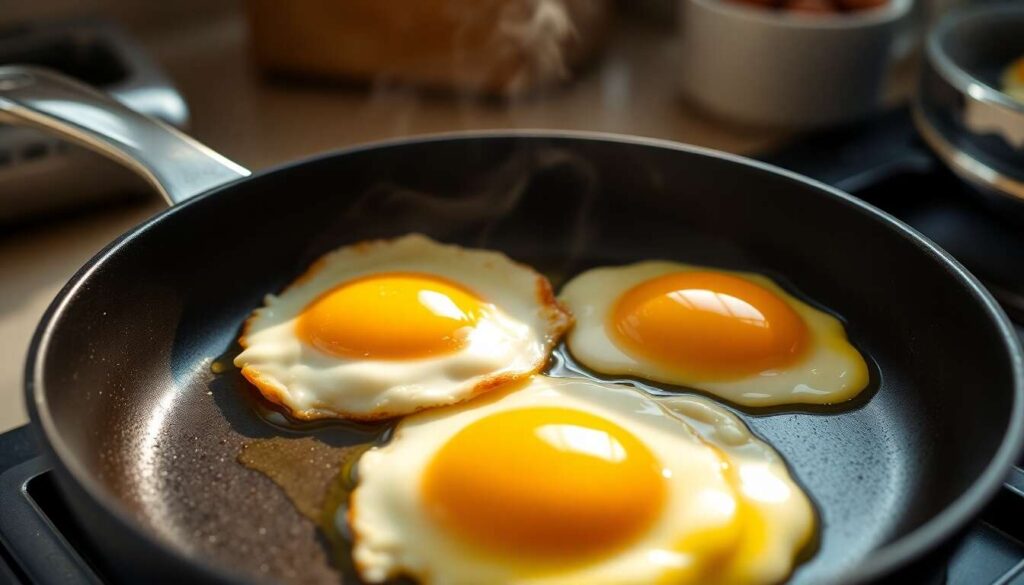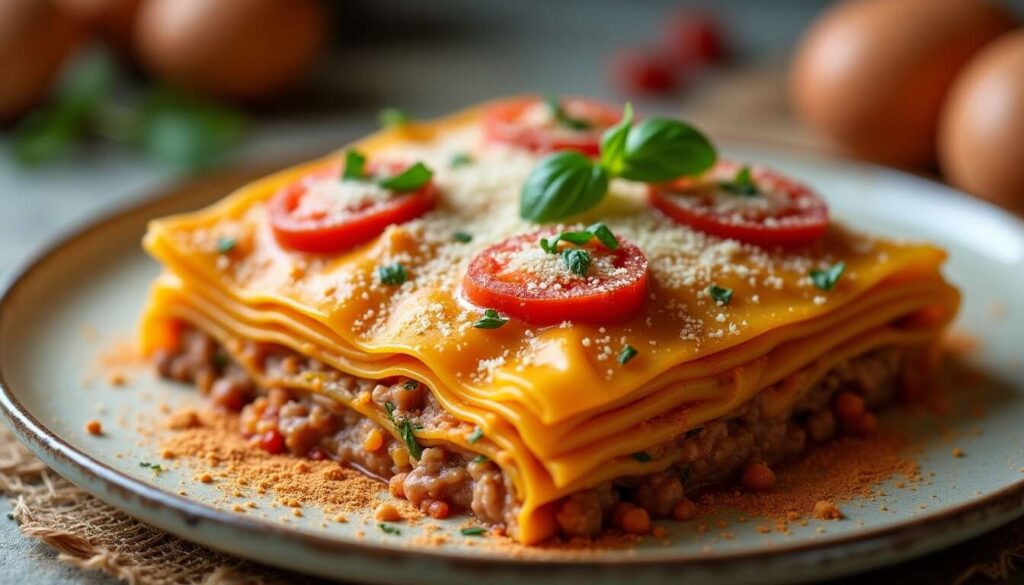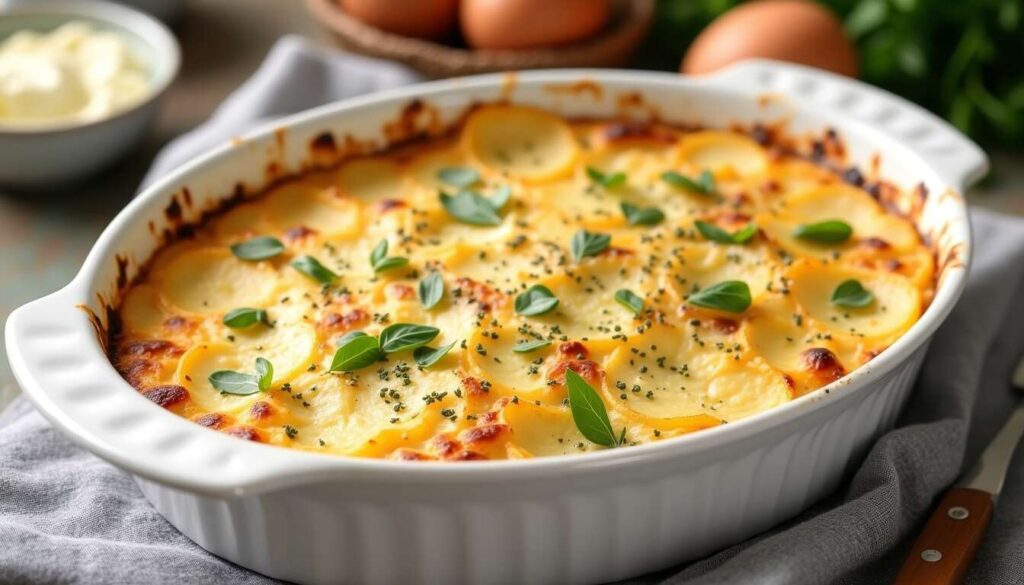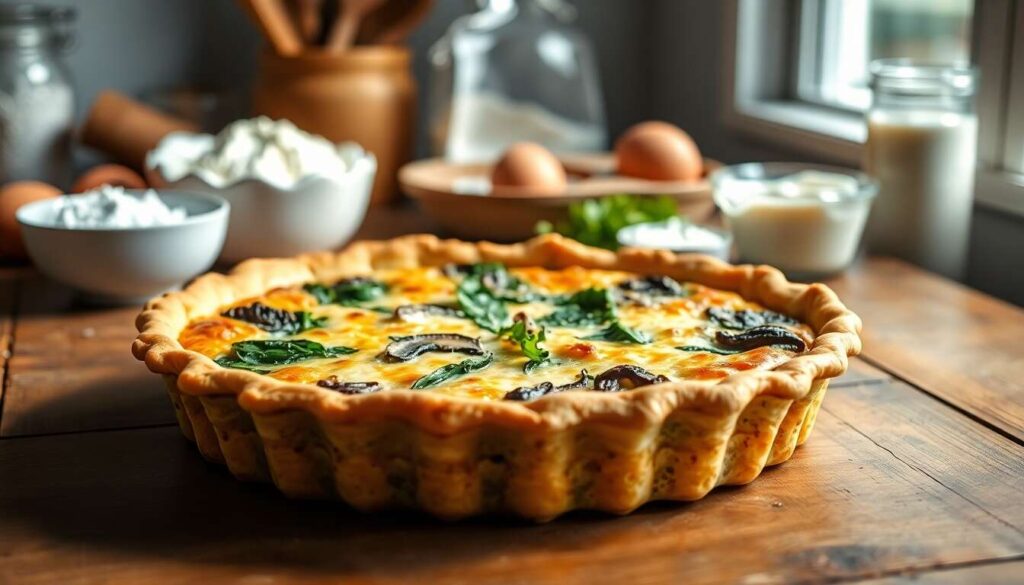Fried eggs, simple yet delightfully satisfying, often find themselves overlooked in many kitchens. However, a recurring mistake can easily transform this appetizing dish into a rubbery preparation. Let’s explore how to prevent this common pitfall and ensure your fried eggs are a culinary success every time.
Understanding the Impact of Temperature on Eggs
The Importance of Bringing Eggs to Room Temperature
A frequent misstep is cooking eggs immediately after retrieving them from the refrigerator. Eggs at room temperature cook more evenly, thus minimizing the risk of a rubbery texture. Avoid thermal shock by allowing the eggs to rest for a few minutes outside the refrigerator before cracking them into the skillet.
Properly Heating the Skillet
It is essential to preheat the skillet on low heat. Never start with a cold skillet, as this leads to uneven cooking. A gentle and consistent heat allows the eggs to cook gradually, achieving the desired silky texture.
A clear understanding of temperature’s significance paves the way for better mastery in frying eggs.
Mastering the Basics of Frying
Cooking Technique
The key is to cook on medium-low heat. This approach enables the whites to cook fully without burning, while keeping the yolk slightly runny. If the heat is too high, the edges will crisp up quickly, and the yolk may harden.
Ideal Timing
Pay attention to cooking time. Perfect fried eggs require approximately 2 to 3 minutes of cooking after being placed in the hot pan. You may cover the skillet to slightly accelerate the process without overcooking the yolk.
- Carefully crack the egg to avoid breaking the yolk.
- Lift the skillet slightly to adjust the heat as needed.
- Use a spatula to shift the egg if certain golden streaks appear too soon.
By mastering these essential techniques, you are on the path to perfecting the art of frying eggs.
Tips to Avoid Rubbery Eggs
Using Additional Ingredients
To prevent a rubbery texture, certain ingredients can work wonders. Adding a pinch of salt during cooking helps stabilize the albumin, preventing the whites from contracting excessively.
Selecting the Right Fat for Cooking
Using fat is crucial for cooking eggs evenly. Butter, at a medium temperature, creates a rich flavor, while olive oil provides a healthier option without compromising texture.
- Butter or ghee for a rich touch.
- Olive oil for a lighter cook.
- A blend of both for the perfect balance.
With these tips, you are sure to avoid rubbery mistakes and achieve impeccable results.
Secret Ingredients for Enhanced Flavor
Enhancing Eggs with Spices
Spices are your allies in transforming ordinary eggs into a flavor sensation. For instance, adding smoked paprika at the end of cooking allows its aromas to develop through residual heat.
Incorporating Fresh Herbs
Fresh herbs such as chives or parsley, sprinkled just before serving, add a touch of freshness and color. They perfectly complement the naturally rich taste of eggs.
- Add a pinch of sea salt.
- Incorporate a hint of freshly ground pepper.
- Garnish with chopped chives or parsley for a finishing touch.
With these secret ingredients, your fried eggs will not only be rubber-free but also bursting with flavor.
The Importance of Kitchen Equipment
Choosing the Right Skillet
The quality and type of pan used plays a significant role in the success of your preparation. Opt for a non-stick skillet to facilitate the sliding of eggs and reduce the risk of sticking.
Maintaining Your Cooking Equipment
Properly caring for your skillet prolongs its lifespan and ensures consistent results. Clean it carefully and avoid metal utensils that could damage the non-stick coating.
Having suitable and well-maintained equipment is essential for achieving perfectly fried eggs.
Common Mistakes to Avoid
Correcting Common Errors
To ensure your fried eggs are always perfect, here are a few mistakes to watch out for:
- Adding eggs to a skillet that is too hot, which instantly burns the whites.
- Neglecting to use sufficient fat, risking sticking.
- Failing to adjust spices and ignoring salt or pepper, depriving the eggs of flavor.
Tips for Successful Cooking
Always adjust the heat according to the size and thickness of the skillet. Large eggs will require slightly longer cooking time, while smaller eggs can be cooked more quickly.
Avoiding these common mistakes will empower you to achieve brilliant fried eggs every time.
Ensuring perfect fried eggs demands careful attention to temperature, cooking techniques, ingredient selection, and the choice of equipment. By steering clear of frequently made mistakes, every meal featuring fried eggs can be a symbol of success and delightful taste.







